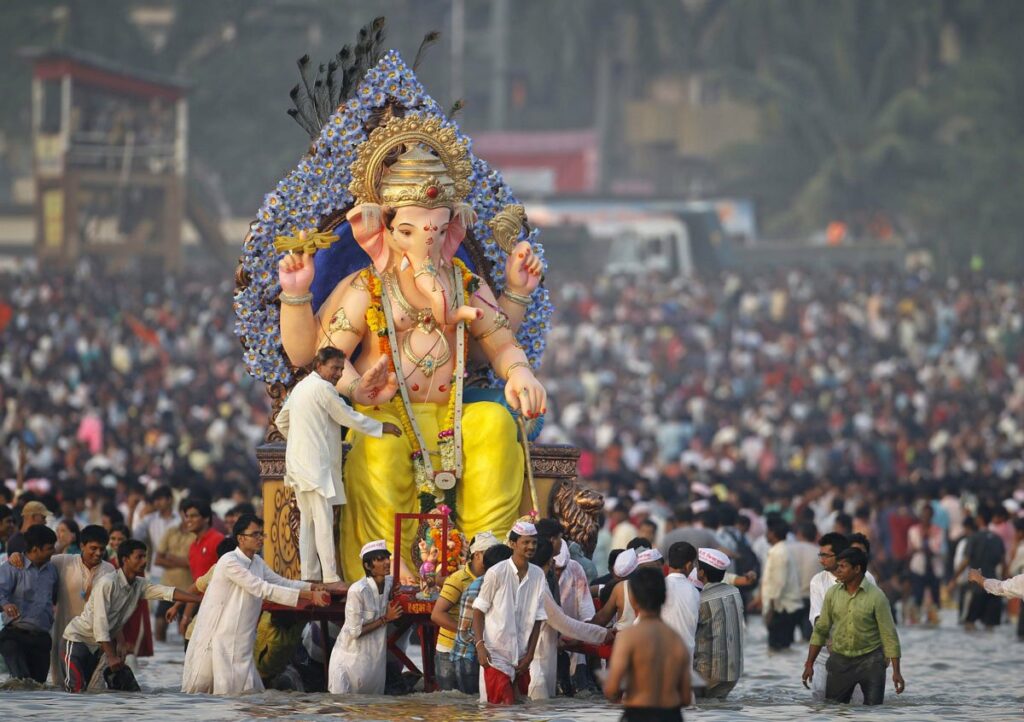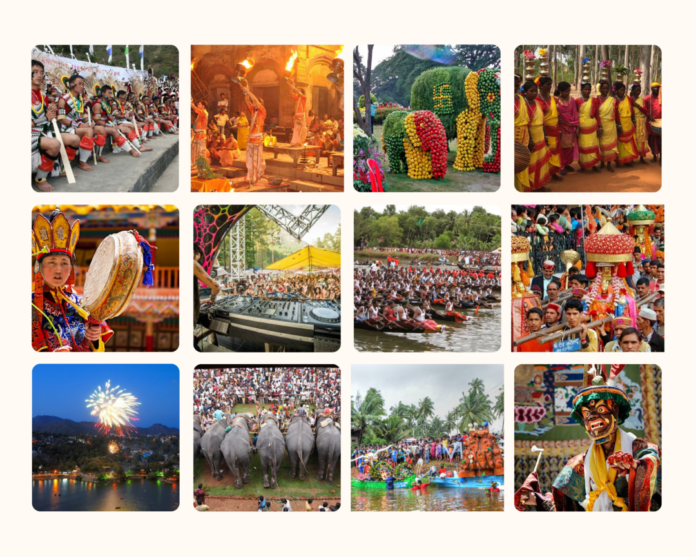Introduction
Festivals are joyous occasions that bring communities together to celebrate and honour various cultural, religious, and seasonal events. They are marked by vibrant traditions, rituals, performances, and festivities that showcase the rich diversity of human cultures. In this article, we delve into the enchanting world of festivals, exploring their significance, the different types of festivals celebrated around the world, and how they contribute to our collective sense of joy and cultural heritage.
The Significance of Festivals
Celebrating Cultural Identity
Festivals serve as a powerful expression of cultural identity, allowing communities to showcase their unique customs, traditions, and artistic forms. Through music, dance, costumes, and culinary delights, festivals provide a platform for people to proudly celebrate and share their heritage with others. They strengthen a community’s bond and contribute to a sense of belonging.
Commemorating Religious Observances
Many festivals have religious roots and are celebrated to commemorate significant events, figures, or beliefs within a particular faith. These religious festivals often involve rituals, prayers, processions, and acts of devotion. They provide an opportunity for individuals to deepen their spiritual connection, seek blessings, and reflect on the teachings and values of their religion.
Marking Seasonal and Agricultural Milestones
Festivals also have ties to the cycles of nature, marking important seasonal and agricultural milestones. These festivals celebrate the changing seasons, harvests, and natural phenomena. They often involve rituals, feasts, and customs that honour the bounties of the Earth and express gratitude for nature’s abundance.

Promoting Social Cohesion
Festivals play a vital role in fostering social cohesion and community spirit. They bring people together, regardless of their background, to share in the joy and festivities. Festivals provide a platform for individuals to connect, form new friendships, and strengthen existing relationships. They create a sense of unity and solidarity within a community.
Types of Festivals Celebrated Worldwide
Cultural Festivals
Cultural festivals showcase the vibrant traditions, arts, and customs of a particular culture or community. These festivals celebrate the unique heritage and practices of a group, including their music, dance, cuisine, crafts, and folklore. Examples include the Chinese New Year, Diwali, Oktoberfest, and Carnival.
Religious Festivals
Religious festivals are deeply rooted in faith and are celebrated to commemorate significant events or figures within a religion. These festivals often involve prayer, worship, rituals, and acts of devotion. Examples include Christmas, Eid al-Fitr, Hanukkah, and Vesak.
Music and Arts Festivals
Music and arts festivals celebrate the creative expressions of artists and performers. These festivals showcase a diverse range of music genres, visual arts, theatre, dance, and other forms of artistic expression. Examples include Glastonbury Festival, Coachella, Edinburgh Festival Fringe, and La Tomatina.
Seasonal and Harvest Festivals
Seasonal and harvest festivals are tied to the cycles of nature and agricultural practices. These festivals mark the changing seasons, bountiful harvests, and natural phenomena. They often involve rituals, feasts, and ceremonies expressing gratitude for nature’s blessings. Examples include Thanksgiving, Pongal, Songkran, and Midsummer celebrations.
Frequently Asked Questions (FAQs)
1. What is the purpose of festivals?
The purpose of festivals varies depending on their cultural, religious, or seasonal significance. They serve to celebrate cultural identity, commemorate religious observances, mark seasonal and agricultural milestones, and promote social cohesion within communities.
2. Why are festivals important for communities?
Festivals are important for communities as they foster a sense of belonging, strengthen social bonds, provide opportunities for cultural expression, and contribute to the preservation of cultural heritage. They also create a positive impact on the local economy by attracting tourists and generating business opportunities.
3. How do festivals contribute to cultural diversity?
Festivals contribute to cultural diversity by showcasing the unique customs, traditions, and artistic expressions of different communities. They provide a platform for cultural exchange, promote understanding between diverse groups, and encourage appreciation and respect for different cultural practices.
4. Can festivals be celebrated by anyone?
Yes, many festivals are open to all individuals, regardless of their cultural or religious background. Festivals often embrace inclusivity and invite people from various communities to join in the celebrations, fostering a spirit of unity and cultural appreciation.
Conclusion
Festivals are the vibrant threads that weave together our cultural tapestry, bringing communities together in joyous celebration. They reflect the rich diversity of human cultures, serving as a platform for the expression of traditions, arts, and beliefs. Festivals not only strengthen social bonds and promote cultural identity but also contribute to a sense of wonder, unity, and shared humanity. As we participate in festivals, we embrace the beauty of our collective heritage and create lasting memories that enrich our lives.
============================================


